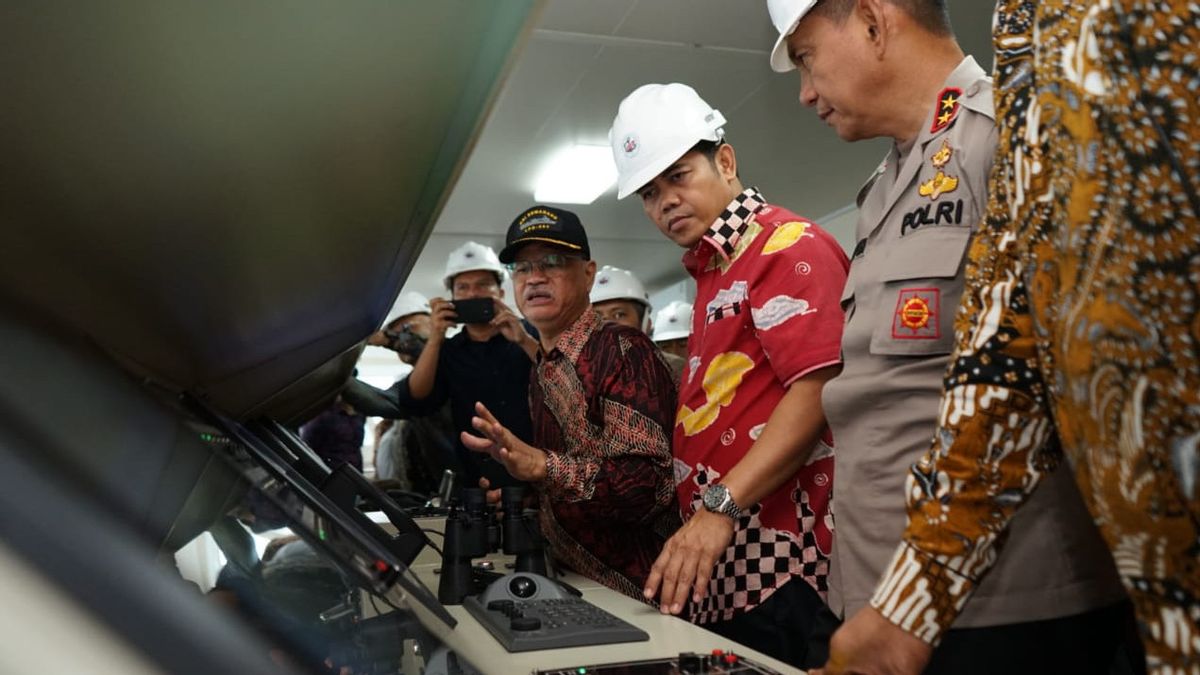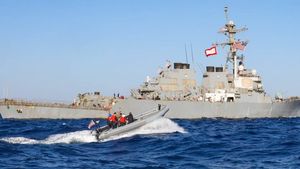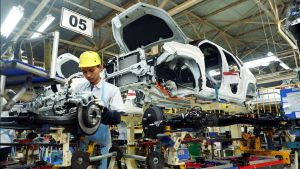JAKARTA - The government places the maritime sector as one of the sectors that has priority in national development. This has a positive impact on efforts to increase competitiveness in the domestic shipping or shipbuilding industry.
"The shipping industry or shipbuilding is a strategic sector and has a vital role for the wheels of the national economy," said the Head of the Industrial Human Resources Development Agency (BPSDMI) of the Ministry of Industry, Eko SA Cahyanto when representing the Minister of Industry at the inauguration of the 1,395 GT Ro-Ro Cargo Ferry. "KMP New Rose" which was built by the shipyard PT Afta Tehnik Mandiri in Makassar, South Sulawesi, Friday 7 February.
The Ministry of Industry gives appreciation to PT Afta Tehnik Mandiri for being able to meet the needs of a quality ship fleet for the smooth running of passenger transportation and logistics distribution to support the marine toll program launched by the government.
In addition, it is hoped that it can encourage the creation of jobs that can absorb human resources (HR) and grow strength in the development of the national shipping industry.
"This is one of the ships made by local workers. So, it is a work of the nation's children, "said Eko. The completion of the KMP New Rose took about 1.5 years and involved 40 workers.
The KMP New Rose was designed and built to fulfill a need that did not exist in the company's previously owned fleet. "The new ship is equipped with new technology to meet the solution to the shortcomings that exist in other ships, which were previously imported from Japan. "Currently, it is easier to maneuver, the technology is partly made in the country," he explained.
In fact, the majority of raw materials or components absorbed by KMP New Rose come from domestic industries, such as the use of steel produced by PT Krakatau Steel (Persero) Tbk. "So, the level of domestic content is quite high, which is supported by the tier 2 and tier 3 component industries," he added.
In order to further improve the competitiveness of the national shipping industry, the Ministry of Industry has pushed through a program to increase the competence of human resources in that sector. "We facilitate the provision of training and certification to improve their abilities, so that their industrial capacity can also be boosted as well as to spur the local to national economy," he explained.
Need Serious Attention
Eko explained, the characteristics of the labor-intensive, capital-intensive and technology-intensive shipping industry require serious handling and attention from the government in order to be able to develop and be competitive.
"For Indonesia, the maritime sector does not only function to increase economic activity, but more than that, as a symbol of the country's strength and sovereignty," he said.
Furthermore, this sector has an important role to play in uniting the regions that are spread across Indonesia. Therefore, the shipyard industry as a manifestation of these ideals has a very big duty and responsibility so that the interests of the state in realizing inter-regional connectivity through strengthening sea transportation facilities can be realized.
"Through the maritime vision, the government is currently trying to make the maritime industry sector competitive at the global level. In fact, the government is getting serious about strengthening it by making Indonesia the world's maritime axis, "he said.
With the inauguration of the 1,395 GT “KMP Ro-Ro Cargo Ferry. New Rose "is expected to be able to encourage job creation that can absorb human resources and grow strength in the development of the national shipping industry pic.twitter.com/rIwSxg3EST
- Ministry of Industry (@Kemenperin_RI) February 7, 2020
On the other hand, the maritime vision provides an opportunity for the shipbuilding industry to continue to grow because the program is able to increase the demand for domestic vessels.
"With the increasing market potential, we hope that the national shipping industry will be able to take advantage of this opportunity to increase its capacity and ability to meet the needs of domestic vessels in the future," he added.
Then, if you look at the characteristics of Indonesia's territory, the aspiration to realize connectivity between regions is very possible through sea transportation modes. Therefore, the ability to meet the needs of the ships and other means of supporting these efforts is indeed necessary.
"Indonesia has an interest in the advancement of a national shipping industry that is able to independently meet the needs of the national ship fleet. In addition, the multiplier effect that occurs with the rotation of the shipping industry business is very large so that it can move the wheels of the economy in other sectors, "he explained.
The Ministry of Industry noted that the national shipping industry has made several advances, including an increase in the number of shipyards to more than 250 companies with a production capacity of around 1 million DWT per year for new buildings and up to 12 million DWT per year for ship repair.
"In the future, it is hoped that the production capacity for new buildings and ship repairs can continue to be increased," he explained.
Eko added that the dream of making Indonesia a maritime axis is not complete without a strong shipbuilding industry. With the same spirit, the government continues to strive to secure and optimize the use of the domestic market for the benefit of the development of the domestic shipping industry as mandated by Presidential Instruction Number 2 of 2009 concerning Increased Use of Domestic Products (P3DN).
"P3DN is a strategy that is quite important and needs to be supported by all stakeholders in the shipping industry," he said.
This is because this policy can provide opportunities and accumulated experience for the national shipbuilding industry so that it is able to meet the needs of ships and other maritime manufacturing industry products.
In addition, other policies that will continue to be encouraged in the interests of the progress of the shipbuilding industry are fiscal policies. This policy is considered important because it can provide flexibility for the shipyard industry in an effort to increase capability and competitiveness.
Furthermore, the need for a large number of components in shipbuilding, when coupled with the right fiscal policy, will provide benefits for the shipbuilding industry sector.
"We all know that the role and contribution of the shipping industry sector to the national economy cannot be ruled out," he said.
In fact, investment in the shipping industry is a very large investment over a long period of time. Therefore, a conducive investment climate is an absolute requirement of the government's attention so that the operational sustainability and productivity of the shipping industry sector can be optimized.
The English, Chinese, Japanese, Arabic, and French versions are automatically generated by the AI. So there may still be inaccuracies in translating, please always see Indonesian as our main language. (system supported by DigitalSiber.id)












